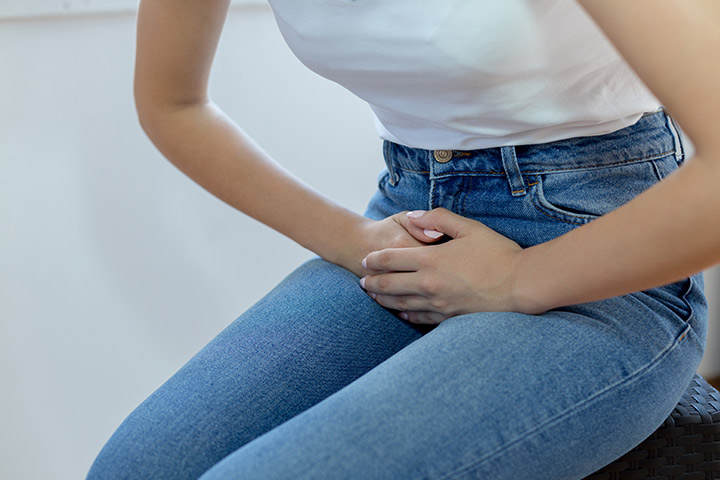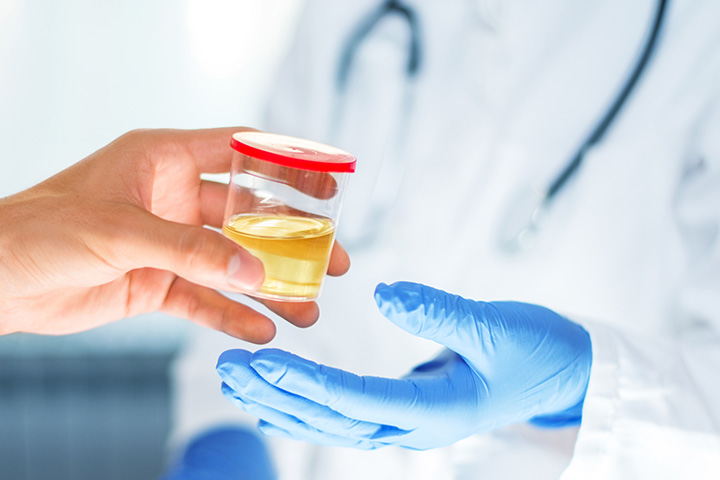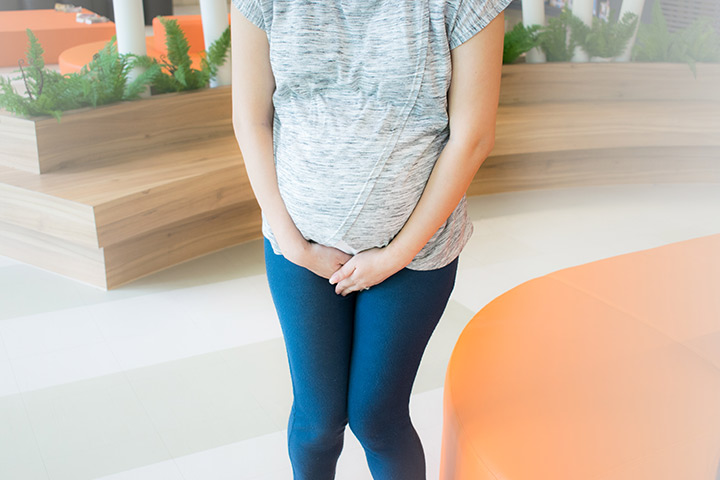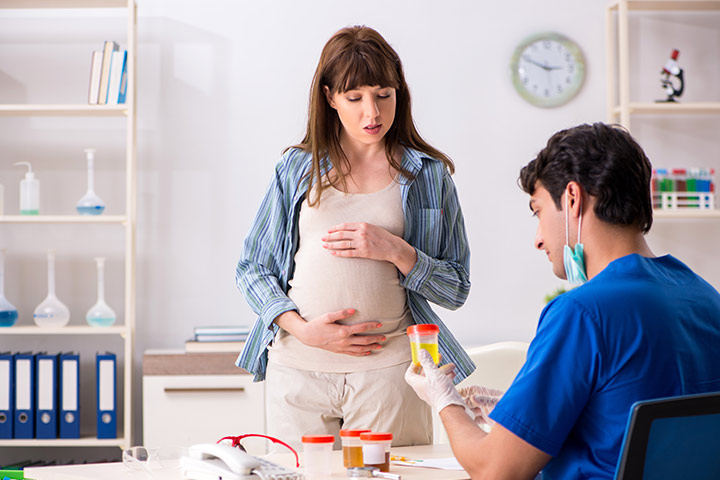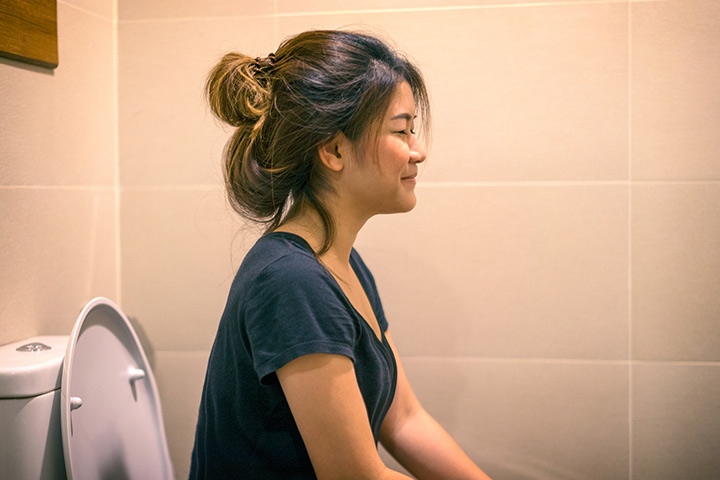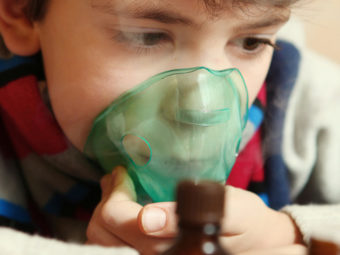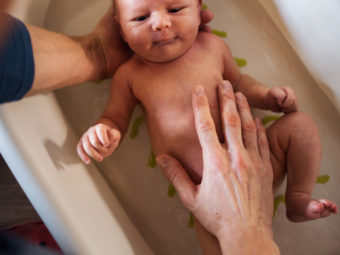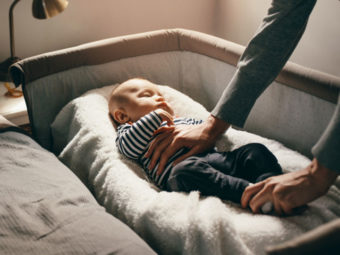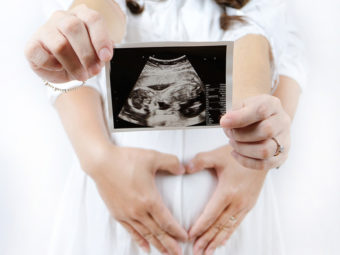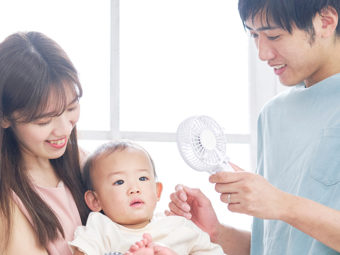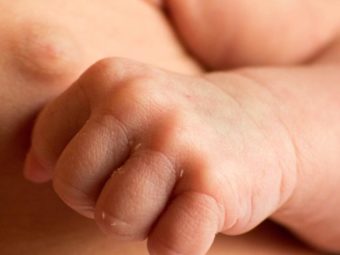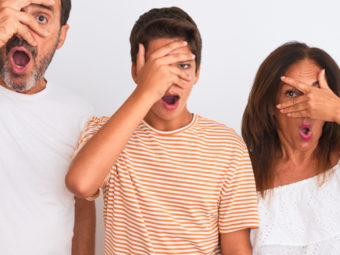
Image: Shutterstock
Your bladder goes through a lot during your pregnancy. In fact, your bladder can give you a hint if you are pregnant or not. The first signs of pregnancy can be a frequent urge to pee. There might be many women out there who got a pregnancy kit because they felt like they are peeing a lot. Of course, it could be a false alarm at times (1).
When pregnant, your fetus can push through and put pressure on your bladder, urethra and pelvic floor muscles. There may have been times where you peed a little every time you coughed or sneezed during your pregnancy. We all have been annoyed and embarrassed because of all the troubles our bladder puts us through. But these are common during pregnancy (2). Let’s dive in further to find out the possible reasons for pain in your bladder during pregnancy:
Urinary Tract Infections (UTI)
它也被称为膀胱感染。泌尿道感染是一个bacterial inflammation that occurs in the urinary tract. Being pregnant puts women more at risk of getting UTIs starting anywhere between week 6 to week 24 (3).
The urinary tract goes through a lot of changes when we are pregnant. The uterus is located directly above the urinary bladder. So, as the baby grows, the bladder is put under pressure from the weight of the uterus. This can obstruct the passing of urine from the bladder and lead to infection. If left untreated, it can cause a kidney infection. This can lead to early labor and low birth weight in your baby (4).
- Look out for thesesigns and symptoms(5):
- Pain or discomfort when urinating
- Pain or tenderness in the bladder area
- Pain or cramps in the lower abdomen
- Pain during intimacy
- Chills, fever, sweats, leaking of urine
- Need to pee more than usual
- Foul smelling or cloudy urine
- Change in the urine amount- less or more
- Back pain, chills, fever, nausea, vomiting when kidneys are affected
- Mucus or blood in the pee
How Is It Diagnosed?
Your doctor will do a urine culture and a urinalysis to detect if you have a bladder infection throughout the pregnancy (6).
How Is It Treated?
UTIs are mostly treated using antibiotics. The doctor may prescribe a 3 to 7-day course of medicine that’s safe for both the mother and the baby. Contact your doctor if the symptoms seem to persist even after 3 days of taking medicines (7).
Urinary Incontinence
Like we mentioned at the beginning, you might have to deal with urine leakage during your pregnancy. Pregnancy can put a lot of pressure on your bladder with the growing fetus in your uterus. You might also get the urge to pee more (8). Pregnant women might try to resist their urge to go to the bathroom to pee every so often. This can put extra pressure on the uterus and might cause you pain and discomfort. But if you feel that the pain never goes away, and/or is accompanied by some other symptoms, it’s better to consult a doctor right away.
Diagnosis And Treatment
Your doctor may conduct several tests which might include urinalysis, ultrasound, bladder stress test, cytoscopy, and urodynamics. You can also monitor your trips to the loo and how often you experience urine leakage (9).
Your doctor may ask you to perform Kegel exercises which can help improve bladder control.
How You Can Relieve Bladder Pain?
- Avoid drinking carbonated drinks, coffee, and tea as it can make you pee more (10)
- Switch to decaffeinated drinks or just water
- Try cutting out drinks after dinner
- But make sure you drink 6-8 glasses of water daily (11)
- Pee as soon as you feel the urge, don’t hold off for later
- Urinate before and after being intimate
- Avoid using any strong products on your lady parts and stick to mild ones
- Try to avoid wearing tight-fitting pants or jeans
Your body goes through a lot of changes when you are pregnant, and the same goes for your bladder. You might not always be able to understand the difference between normal and a red flag. So it’s better to consult a doctor or midwife to rule out any diseases if the pain in the bladder seems to persist.

